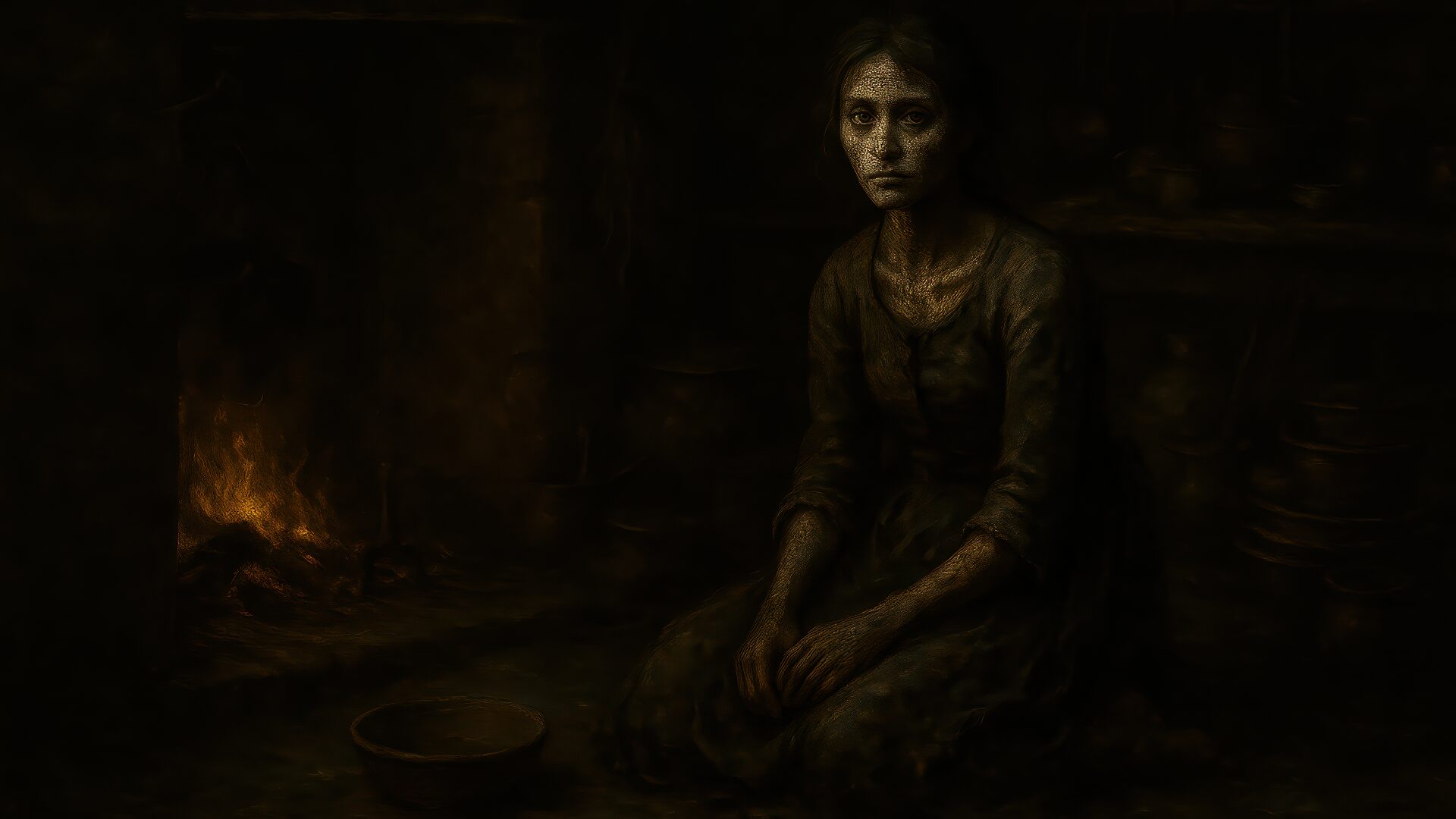Cinderella (Aschenputtel, 1812)
SYNOPSIS
Aschenputtel (1812): no glass slipper, no fairy godmother; only ash, grief, and justice.
A dying mother bids her daughter remain pious and good. From a hazel branch planted on her grave grows a tree and a white bird that grants the girl gowns of silver and gold.
For three festival nights she dances with the prince, vanishing each time, until his pitch-coated stairs catch a golden slipper. Desperate stepsisters mutilate their feet to force a fit, but the birds cry the truth: “There’s blood in the shoe.”
Found at last, the ash-covered girl becomes the bride, and at the wedding the white birds deliver judgment on the cruel. A faithful Grimm retelling where devotion is rewarded and cruelty repaid. No miracles, no apologies.
TRANSCRIPT
[Music]
No glass slipper, no pumpkin carriage,
no fairy godmother,
just ash, blood, and justice.
Welcome to True Grimm Stories, where
fairy tales return to their original
form, uncensored,
unearthed,
unforgettable.
Ashen Puddle, first recorded by the
Brothers Grimm in 1812. The real
Cinderella.
Not for the faint of heart.
Once upon a time, a girl’s mother grew
ill. As she lay dying, she whispered,
“Remain pious and good, dear child, and
I will watch over you from heaven.”
Then she closed her eyes and died.
When winter came, the snow spread a
glistening white cloth over her mother’s
grave. Then, with the return of spring
and sun, the snow melted away.
Her father remarried and brought home
two daughters.
Beautiful of face but black of heart.
Though her father lived, he did nothing
to stop them as they stripped the girl
of her clothes, forced her to sleep by
the hearth covered in ash, and named her
Ashen Puddle—Cinderella.
One day, the father prepared for a
journey to the fair. He asked his
stepdaughters, “What shall I bring you?”
“Beautiful clothes,” cried one. “Pearls
and jewels,” demanded the other. But
when he turned to Cinderella, she said
simply, “Father, bring me the first twig
that brushes against your hat on your
way home.” The stepsisters laughed cruelly
at her simple request.
Each dawn, Cinderella wept at her
mother’s grave, where she planted the
small hazel branch and watered it with
her tears.
From sorrow it grew into a mighty tree,
home to a white bird.
Whatever she wished, the bird brought
down to her.
The king held a grand festival, three
nights of dancing.
[Music]
Cinderella begged to go.
She is mocked and tasked to sort lentils
from ashes twice. Birds help her—the
good into the pot, the bad into the
crop. Yet her stepmother still refuses.
So she weeps beneath the hazel tree.
“Little tree, little tree, shake over me,
that silver and gold may come down and
cover me.”
The bird delivered gowns of silver and
gold, and slippers first of silk and
silver.
Then, on the final night, slippers of
pure gold.
Each night she slipped away.
Each night she danced with a prince.
[Music]
Each night she vanished before he could
speak her name.
On the third night, desperate not to
lose her,
the prince spreads pitch on every stair;
Cinderella flees, but her golden slipper
sticks fast.
The prince vows to marry the one it
fits. Slipper in hand, the prince sought
his mysterious love.
From house to house
[Music]
until he reached Cinderella’s door.
The stepsisters pressed their feet
inside, one slicing off her toe, the
other her heel.
Yet the shoe would not fit.
“Turn and peep. Turn and peep. There’s
blood within the shoe. The shoe—it is
too small for her. The true bride waits
for you.”
The prince asked, “Are there no other
maidens here?” Her father replied
coldly, “There’s only little Cinderella,
my dead wife’s daughter. It’s impossible
that she can be the bride.”
But the prince demands to see her. At
last, Cinderella appears,
still clad in ashes. He lifted her foot,
and the golden slipper slipped on as if
made for her—faith and purity revealed
at last.
The girl he danced with under moonlight
stood before him.
On Cinderella’s wedding day, the white
birds returned, not with song, but with
wings of justice. They swooped upon the
wicked stepsisters and pecked out their
eyes for every cruel deed. Blinded by
ambition, cursed forever.
Beneath the hazel tree that grew from
tears, Cinderella found her prince.
No fairy godmother granted this wish.
Only a daughter’s devotion to her
mother’s memory and the reward that
comes to those who remain
pious and good.
The Grimm version ends with poetic
justice. No miracles, no apologies,
just a brutal lesson. Cruelty will be
repaid in kind.
This is truth the way it was once told.
Thank you for watching True Grimm
Stories. Subscribe for more tales that
were never meant to be bedtime stories.
More to come.
[Music]
IMAGES
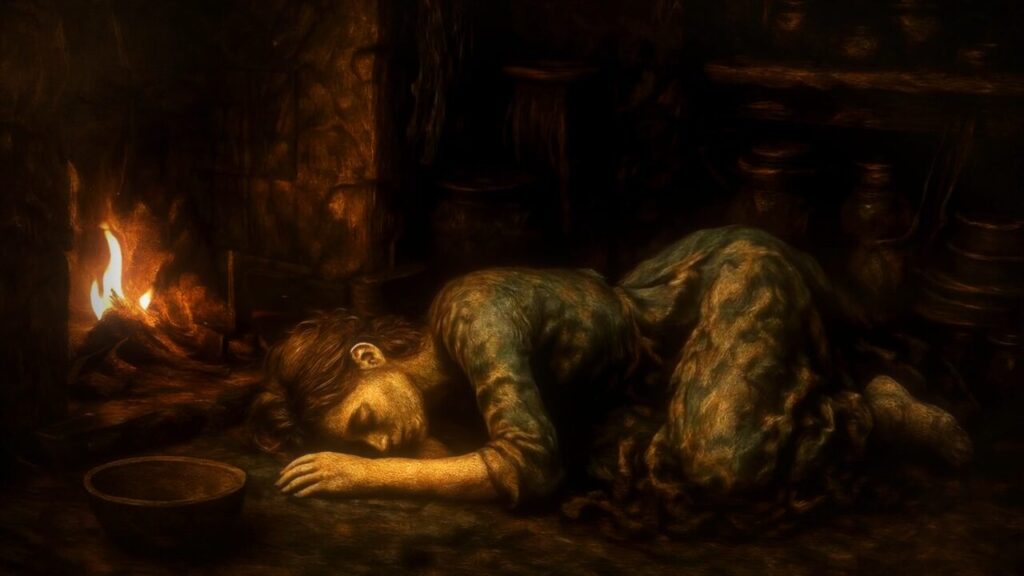
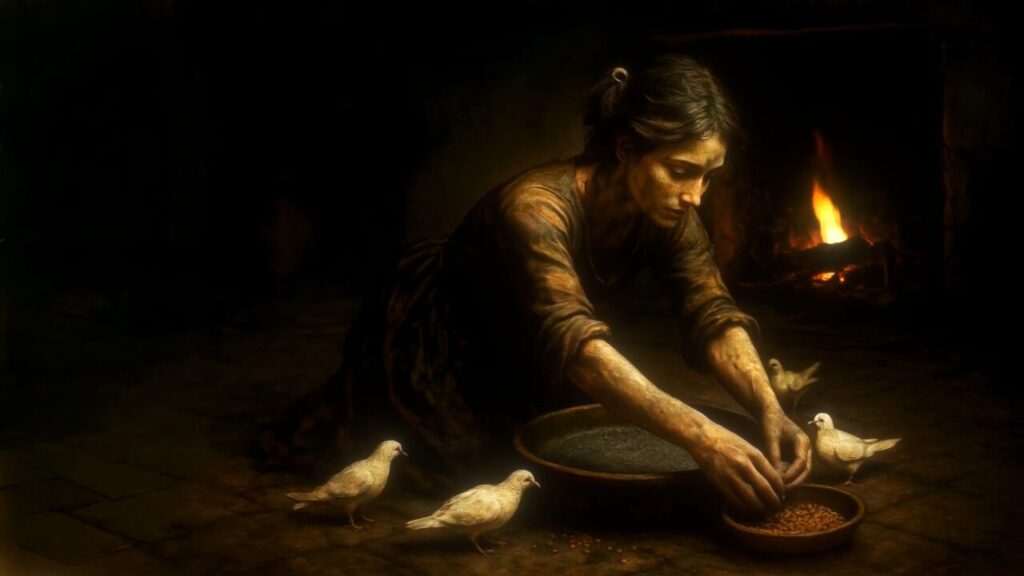
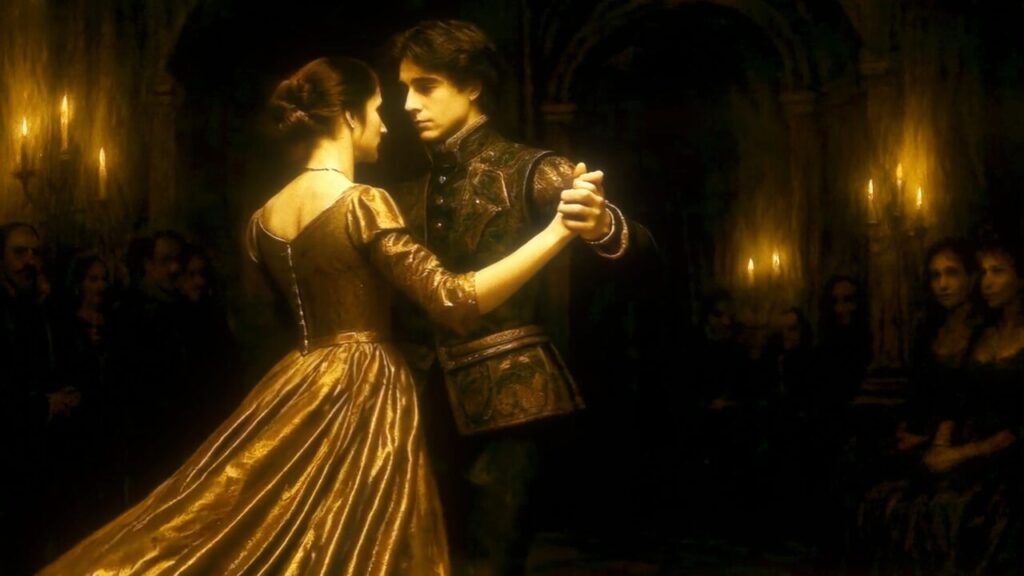
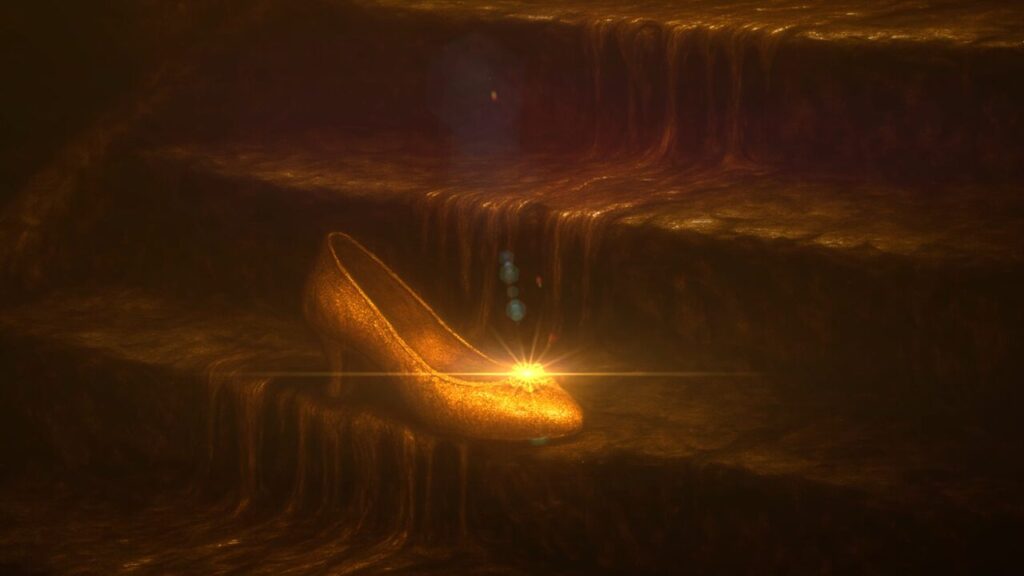
NOTES
- No fairy godmother in the Grimm text; aid comes from the hazel tree and birds.
- Three nights at the festival; the prince pursues; false fits by the stepsisters.
- Source: Kinder- und Hausmärchen (1812/1815), public domain.
RELATED STORIES

